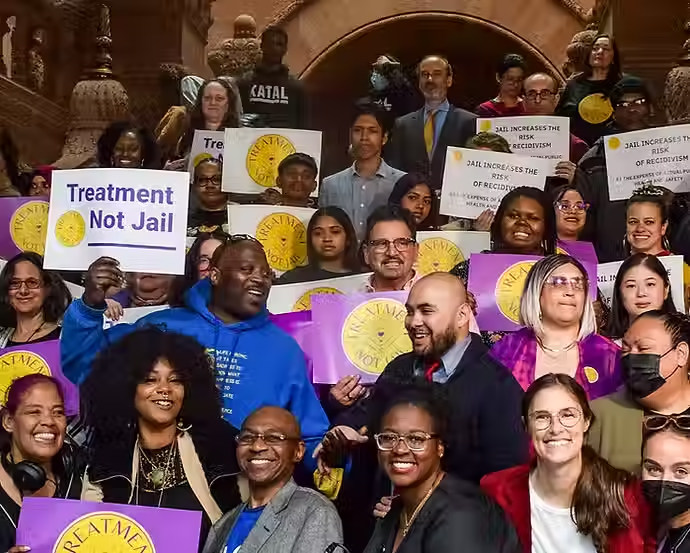Welcome to My Story
Exposing Abuse at Rikers Island
Welcome to my story as a whistleblower. As a clinical social worker, I exposed the mistreatment of mentally ill individuals detained at Rikers Island, helping to spark change. This site chronicles my journey in the fight for justice, accountability, and a more humane correctional system.
Here, you’ll find articles detailing what I witnessed at Rikers Island and the steps I took to blow the whistle on these injustices.
Advocacy and Reform Efforts
Treatment Not Jail Act- Advocacy Day, Jan 21st, 2025
The safest communities are the healthiest communities. Invest in treatment, not jail.
For decades, New Yorkers dealing with mental health and substance use issues have been funneled into our jails and prisons and denied the treatment they need to get better.
Our jails have become our largest psychiatric facilities in the country, and when people emerge from them, they are more traumatized and destabilized than ever.
A New York State bill, the Treatment Not Jail Act, will provide off-ramps from the revolving door of jail and prison for those who are brought into the criminal legal system due to underlying mental health and substance use issues.
Community Not Cages Coalition, Advocacy Day, Feb 4th, 2025
https://www.communitiesnotcagesny.org/take-action
•- Second Look (S.321 - Salazar / A.531 - Walker)
•- Earned Time Act (S.774 - Cooney / A.1128 - Kelles)
•- Marvin Mayfield Act (S.6471 - Myrie/A.2036A- Meeks)
•Mandatory minimum sentencing drives mass incarceration, strips judges of discretion, and grants outsized power to prosecutors to coerce guilty pleas. The Eliminate Mandatory Minimums Act will eliminate mandatory minimum sentences, allowing judges to consider the individual factors in a case. In doing so, this legislation will fully and finally undo the harm of the Rockefeller Drug Law era.
•The Second Look Act will allow judges to review and reconsider excessive sentences. Under current sentencing laws, incarcerated people have no opportunity to demonstrate to a judge that they have transformed while incarcerated or to seek a reconsideration of their sentences based on changes in law and norms. The Second Look Act will allow incarcerated people to apply for a re-sentencing hearing after they have served 10 years or half of their sentence.
•Following the federal 1994 Crime Bill, New York State slashed programs for incarcerated people and dramatically limited the time people could earn time off of their sentences. The Earned Time Act will strengthen and expand “good time” and “merit time” laws to encourage personal transformation in prison and reunite families.



